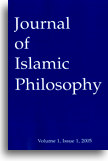"...the Imagination (or love, or sympathy, or any other sentiment) induces knowledge, and knowledge of an 'object' which is proper to it..."
Henry Corbin (1903-1978) was a scholar, philosopher and theologian. He was a champion of the transformative power of the Imagination and of the transcendent reality of the individual in a world threatened by totalitarianisms of all kinds. One of the 20th century’s most prolific scholars of Islamic mysticism, Corbin was Professor of Islam & Islamic Philosophy at the Sorbonne in Paris and at the University of Teheran. He was a major figure at the Eranos Conferences in Switzerland. He introduced the concept of the mundus imaginalis into contemporary thought. His work has provided a foundation for archetypal psychology as developed by James Hillman and influenced countless poets and artists worldwide. But Corbin’s central project was to provide a framework for understanding the unity of the religions of the Book: Judaism, Christianity and Islam. His great work Alone with the Alone: Creative Imagination in the Sufism of Ibn ‘Arabi is a classic initiatory text of visionary spirituality that transcends the tragic divisions among the three great monotheisms. Corbin’s life was devoted to the struggle to free the religious imagination from fundamentalisms of every kind. His work marks a watershed in our understanding of the religions of the West and makes a profound contribution to the study of the place of the imagination in human life.Search The Legacy of Henry Corbin: Over 800 Posts
Friday, October 1, 2010
The Journal of Islamic Philosophy
The Journal of Islamic Philosophy
The mission of the Journal of Islamic Philosophy is to encourage the academic study of Islamic philosophy. The Journal provides a unique peer-reviewed forum to scholars, professors, and researchers for the philosophical discussion of topics in Islamic thought. Classical Islamic philosophy of the past masters will be examined again with a new focus. The underlying issues regarding the many ethical, metaphysical, existential, and epistemological challenges posed by western philosophy and others will be explored within an Islamic context. We hope to serve as an impetus toward the renewal of the robust and dynamic spirit of advanced Islamic philosophical discourse in the current era. Prominent scholars serve on the Editorial Board of the Journal.
The Journal is now accepting submissions for future issues - details here.
SPRING 2011 will bring a special issue on Mulla Sadra.
The mission of the Journal of Islamic Philosophy is to encourage the academic study of Islamic philosophy. The Journal provides a unique peer-reviewed forum to scholars, professors, and researchers for the philosophical discussion of topics in Islamic thought. Classical Islamic philosophy of the past masters will be examined again with a new focus. The underlying issues regarding the many ethical, metaphysical, existential, and epistemological challenges posed by western philosophy and others will be explored within an Islamic context. We hope to serve as an impetus toward the renewal of the robust and dynamic spirit of advanced Islamic philosophical discourse in the current era. Prominent scholars serve on the Editorial Board of the Journal.
The Journal is now accepting submissions for future issues - details here.
SPRING 2011 will bring a special issue on Mulla Sadra.
Subscribe to:
Post Comments (Atom)









No comments:
Post a Comment